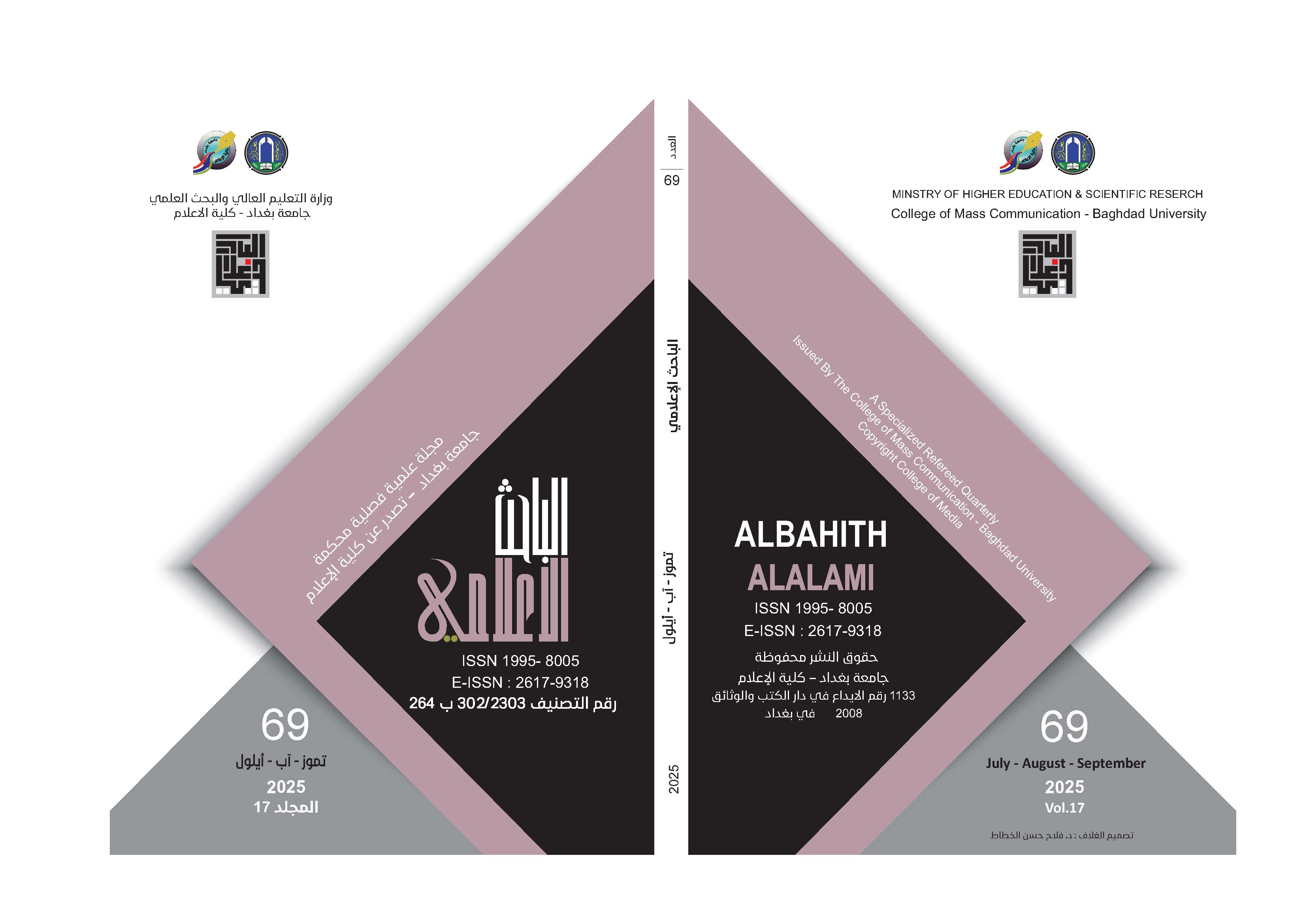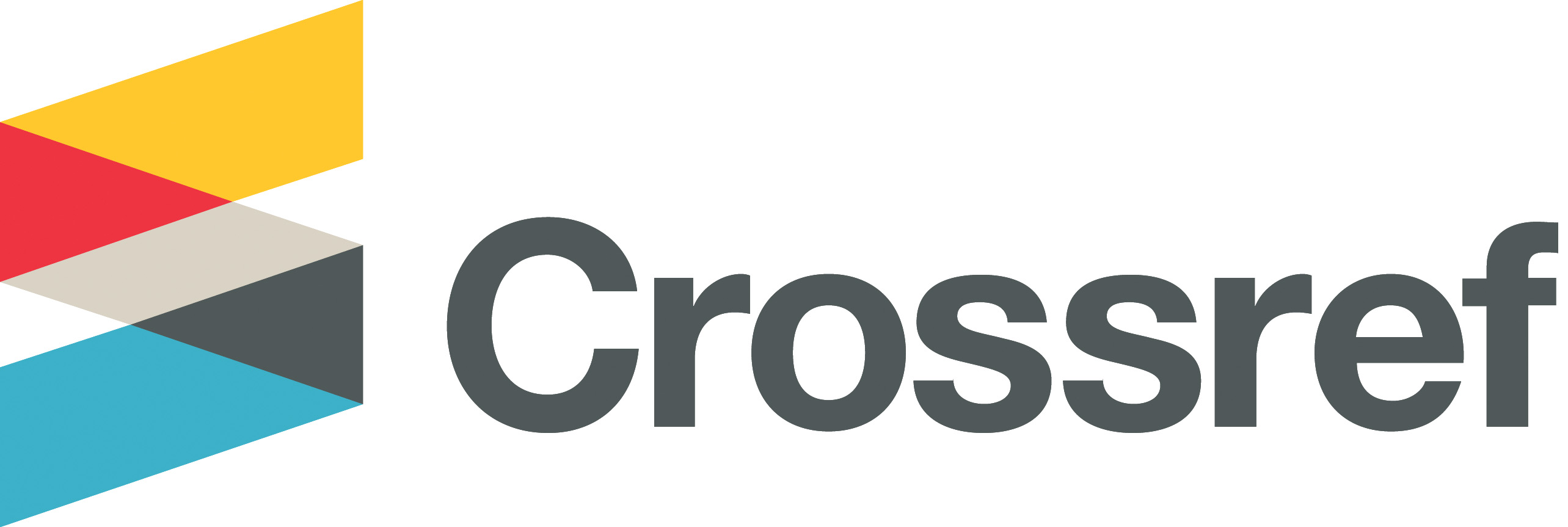The Reality of Media Training Programs for Palestinian Female Journalists in Light of Digital Media
DOI:
https://doi.org/10.33282/abaa.v17i69.1277Keywords:
Media training, Palestinian female journalists, digital mediaAbstract
Objectives: This study aims to reveal the reality of media training for Palestinian female journalists in the Gaza governorates in light of developments in digital media, to identify the nature of professional training that meets their needs, and to evaluate the effectiveness of the training programs provided to them from their own perspective.
Methodology: The study relied on the descriptive method, using a survey approach. A questionnaire was applied to a random sample of (80) Palestinian female journalists working in media institutions in the Gaza governorates.
Results: The results showed that the most prominent obstacles facing media training were reliance on traditional methods (72.5%), similarity of training topics (63%), and weak funding (52.5%). Additionally, (45%) of respondents indicated the scarcity of specialized training departments within media institutions, (35%) stated that training lacks integration between theory and practice, and (33.75%) pointed to the failure to keep up with technological developments as one of the most significant challenges limiting the success of media training.
Conclusion: The study reveals a clear gap between the requirements of professional development for Palestinian female journalists and the reality of the training programs provided to them. This calls for updating methods, diversifying topics, and strengthening the practical and technological aspects of media training to ensure its effectiveness and responsiveness to field needs.
Downloads
References
Al-Basyouni, M. S. (2013). Fundamentals of Scientific Research in Educational, Social, and Human Sciences. Cairo: Dar Al-Fikr Al-Arabi.
Al-Borsan, I. A. (2021). The reality of journalistic training for Jordanian journalists Under the digital newspaper. The Egyptian Journal of Media Research, 2021(77), 1835-1855. https://doi.org/10.21608/ejsc.2021.226125
Al-Mashhadani, S. S. (2017). Methods of Media Research. Al Ain: University Book House.
Al-Nasr, M. M. A. (2009). Stages of the Training Process: Planning, Implementation, and Evaluation of Training Programs (2 ed.). Cairo: The Arab Group For Training And Publishing.
Al-Omrani, A. M. I. (2012). Researcher's Guide to Preparing Scientific Research (2 ed.). Sanaa: Dar Al-Kitab Al-Jami'i.
Al-Sakaranah, B. K. (2011). Training Packages. Amman: Dar Al-Masirah for Publishing and Distribution.
Al-Taani, H. A. (2010). Contemporary Administrative Training (2 ed.). Amman: Dar Al-Masirah For Publishing And Distribution.
Alharbi, K. b. s., & Alshehri, A. b. A. (2017). The Reality of Training in Some Arab Institutes and Colleges of Civil Defence: Descriptive Study. Riyadh: Naif University Publishing House. https://doi.org/10.26735/xkbf2011
ALMASHAQBEH, S. S. S. (2025). THE REALITY OF MEDIA TRAINING IN JORDANIAN SATELLITE CHANNELS IN LIGHT OF THE DEVELOPMENT OF ARTIFICIAL INTELLIGENCE TECHNIQUES FROM THE POINT OF VIEW OF TECHNICAL PERSONNEL-A FIELD STUDY. Journal of Theoretical and Applied Information Technology, 103(3), 969-981. https://www.jatit.org/volumes/Vol103No3/15Vol103No3.pdf
Alsharah, A. M. (2017). Managing the Training Process: Theory and Practice. Amman: Dar Hamed For Publishing And Distribution.
Ananzeh, A. A. (2017). The Factors Influencing the Professional Performance of Journalists in Jordanian News Websites: A Survey Study. Association of Arab Universities Journal for Arts, 15(2), 449-484. https://aauja.yu.edu.jo/index.php/vol15n2/222-2021-05-27-17-27-24
Bin Hussein, H. B. S. H. (2019). Training Programs and Their Role in Enhancing Journalists' Performance in Crisis Management [Unpublished Master's Thesis, Naif Arab University for Security Sciences].
Fahmy, N., & Abdulmajeed Attia, M. (2024). Egyptian Journalists’ Perceptions of Digital Journalism Training Effectiveness. SAGE Open, 14(1), 21582440241232756. https://doi.org/10.1177/21582440241232756
Kareem, F. A. (2017). The Importance of Training in the Administrative Development of Media Institutions: A Descriptive Analytical Study of M'sila Radio as a Model [Master's Thesis, University Mohamed Boudiaf - M'sila]. https://repository.univ-msila.dz/items/709b2da1-6b9e-425d-95f4-a4189e83d8b8
Malhani, Z., & Mazouni, K. (2013). The Role of Media Training in Enhancing Journalists’ Performance [Unpublished Master's Thesis, University of Biskra].
Moreno-Gil, V., Chaparro-Domínguez, M.-Á., & Pérez-Pereiro, M. (2023). Future journalists’ fight against disinformation: analysis of university training offers and challenges in the Spanish context. Communication & Society, 36(2), 171-185. https://doi.org/10.15581/003.36.2.171-185
Muhairiq, M. O. (2013). Fundamentals of Human Resource Training. Cairo: Al-Sahab For Publishing And Distribution.
Murad, K. K., & Al-Mashagbah, S. (2022). The reality of media training in Jordanian media institutions from the view point of journalists – a field Study. Middle East Journal of Communication Studies, 2(1), 143-166. https://mejcs.meu.edu.jo/?p=1724
Obeidat, T., Adas, A. R., & Abdul Haq, K. (1984). Scientific Research: Its Concept, Tools, and Methods (2 ed.). Amman: Dar Al-Fikr.
Qarah, S., & Zaim, N. (2017). The Role of Media Training in Improving the Professional Performance of Journalists in Algeria: A Field Study at the Radio Training Center in Oum El Bouaghi City [Master's Thesis, University Larbi Ben M’hidi Oum El Bouaghi]. https://bitly.cx/ZD6p6
Shaaban, K. (2001). Terms in Media and Communication. Algiers: Dar Al-Lisan Al-Arabi For Translation, Authorship, And Publishing.
Shaabi, W. (2015). Media Training Within the Framework of Total Quality Management in Media Institutions: A Case Study of Al-Khabar Press Foundation [Master's Thesis, University Mohamed Boudiaf - M'sila]. https://repository.univ-msila.dz/bitstreams/c0bfc690-e129-4050-8f0a-5bacf994b756/download
Sokolović, B., Šiđanin, I., Duđak, L., & Kokotović, S. (2023). Professional Training of Employees in Media Organizations in Serbia and Its Implications on Career Development. Sustainability, 15(5), 4105. https://doi.org/10.3390/su15054105
Twaissi, N. M., Tweissi, B. M., & Suleiman, R. J. (2015). Quality of Media Training in Jordan. Jordan Journal of Social Sciences, 8(2), 307-328. https://archives.ju.edu.jo/index.php/jjss/article/view/9560
Wafi, A. M. Q., & Zaqout, A. S. M. (2021). Journalist training for the communicator in the Media institutions and its relationship to the professionalism "A Field Study". Journal of Mass Communication Research "JMCR", 56(2), 635-676. https://doi.org/10.21608/jsb.2021.143204
Zaqout, A. S. M. (2018). The Reality of Journalism Training in Gaza Governorates and its Reflection on the Professional Performance of Palestinian Journalists: A Field Study [Master's Thesis, Islamic University of Gaza]. https://search.mandumah.com/Record/1007813
Downloads
Key Dates
Received
Revised
Accepted
Published
Issue
Section
License
Copyright (c) 2025 Author

This work is licensed under a Creative Commons Attribution 4.0 International License.
Authors retain copyright and grant the journal right of first publication with the work simultaneously licensed under a Creative Commons Attribution License (CC BY 4.0) that allows sharing the work with recognition of authorship and initial publication in ABBA journal.


















